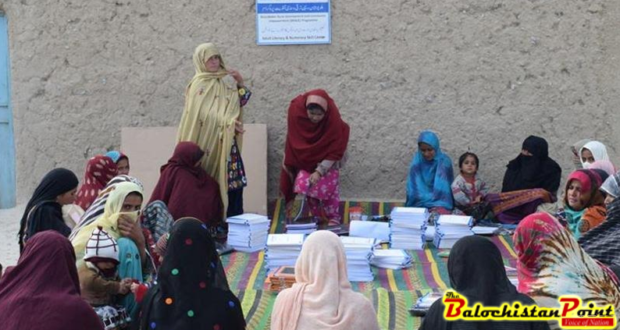By: Rafiullah Mandokhail
QUETTA: Education plays key role in the socio-economic development of society. Initiating and sustaining economic growth and development minimum 70 percent literacy rate is essential. But in Balochistan the state of education paints a dismal picture as only 27 out of hundred adults are literate and the adult literacy rate is male 38% and female 13% in the province.
In order to make the women literate and increase its literacy rate, Balochistan Rural Development and Community Empowerment Program funded by European Union has initiated an adult literacy and numeracy skills program for the rural women in eight targeted districts. The statistics reveal that one of four women has the basic reading and numerical skill.
Technical and Vocational Education and Training (TVET) through accredited training institutions, provision of Income Generating Grants (IGGs) to poor men and women are parts of the program.
BRACE Program has initiated Adult Literacy and Numeracy (ALN) skills training for 575 women in collaboration with Japanese International Co-operation Agency (JICA) and Directorate of Non-Formal Education. For the purpose, 17 women as Community Resource Persons have been trained in six districts including Pishin, Zhob, Khuzdar, Washuk, Jhal Magsi and Killa Abdullah. Moreover, 23 Adult Literacy and Numeric centers have been set up so far with 575 women learners enrolled in a six-month course. After 6 months, these learners will have the literacy and numeracy level of a third grade student. The learners were selected based on their poverty score card rating and their willingness to acquire basic level literacy skills. After completing the course, the learners would be assessed by Balochistan Assessment and Examination Commission (BAEC). The program aims to include around 10,550 women to numeracy and literacy skills trainings in Balochistan.
Published in The Balochistan Point on March 2, 2019
 Balochistan Point Voice of Nation
Balochistan Point Voice of Nation




